— Well I let her bawl away, to her heart’s content Kitty O’Shea and the rest of it until she called that lady a name that I won’t sully this Christmas board nor your ears, ma’am, nor my lips by repeating.
He paused. Mr. Dedalus, lifting his head from the bone, asked:
—A nd what did you do, John?
— Do! said Mr. Casey. She stuck her ugly old face up at me when she said it and I had my mouth full of tobacco juice. I bent down to her and Phth! says I to her like that.
He turned aside and made the act of spitting.
— Phth! says I to her like that, right in the eye.
He clapped a hand to his eye and gave a hoarse scream of pain.
— Oh Jesus Mary and St Joseph! says she. I’m blinded! I’m blinded and drownded!
"A Portrait of the Artist as a Young Man" – by James Joyce
Arguments like the above were all over Ireland, some defending the Irish Nationalist and “Uncrowned King of Ireland,” Charles Stewart Parnell, while others condemning him and his mistress, Kitty O’Shea. Ireland’s priests censured the couple effectively ending Parnell’s career and his dream of Home Rule.

Today, an inordinate number of Irish pubs across the world are named after her even though “Kitty O’Shea” was a name she hated, and who could blame her? “Kitty” was a slur for a prostitute and “O’Shea” was the name of her estranged husband, Captain William O’Shea, a man she had come to despise. She was born Katharine Wood in London, to an aristocratic Anglo-Irish family in 1846 and was known to all those close to her as “Katie.“ In 1867, she married Willie O’Shea, a Catholic from County Clare, but in time Willie proved feckless, fiscally challenged, and mostly absent. Still, they managed to have three children; Kitty was the sole support of the family having found employment as a companion to her rich aunt known, oddly, as Aunt Ben. After eight years of marriage, Kitty had enough of Willie and gave him the air, beginning life as a single mother.
Kitty was a vibrant personality, known both for her beauty and passion for Irish nationalism. In 1880, Willie, popped by her house for tea but really to beg her, despite many years of separation, to help with his run for Parliament. He desperately wanted to be MP for County Clare, and could she please invite Charles Stewart Parnell, the head of the Irish Parliamentary Party for dinner? She wrote Parnell, reluctantly and Parnell accepted, reluctantly. But when they met, their mutual attraction was instant and overwhelming. Correspondence began immediately, their letters began with social niceties but in short order, turned passionate—“Mrs. O’Shea” became “My Dear Love,” “My Wife,” and “My Queen.” Willie got his seat in Parliament, continued pandering to Parnell, and chose to ignore the obvious: his wife and the Chief were in love.
The peasantry of Ireland likewise fell under the power of his charisma. They never saw him as a Wicklow Protestant Landlord (which, at one time, he was) nor did they notice his aristocratic bearing or his softly modulated voice. He was one of their own.
Parnell had a major success in Parliament as well. Despite his always delicate health, he filibustered days and nights making it impossible for Prime Minister Disraeli to pass any legislation. He openly defied Disraeli because the Conservatives had continued to ignore Ireland and her party in Parliament. Disraeli was soon out, replaced by the Liberal, William Gladstone. Parnell, it seemed, was now a force to be reckoned with.
Meanwhile, Kitty was kept busy as his secretary, adviser, liaison with Gladstone (he was a friend of her family), nurse, and lover. She also began writing about him, a book that years later, she would call Charles Stewart Parnell: His Love Story and Political Life. The title is something of a misnomer since Kitty was, truth be told, the center of the book. Her prose leaned to the purple, “I had been swept into the avalanche of Parnell’s love; for I possessed the husband of my heart for all eternity.” He spoke to her in language more profound, “For good or ill, I am your husband, your lover, your children, your all. And I will give my life to Ireland, but to you, I give my love, whether it be your heaven or your hell. It is destiny.
The following year, Parnell, now President of the Land League, was sentenced to Kilmainham Jail. His crime? Urging tenant farmers to withhold rent, a bold protest especially coming from a former landlord. The farmers stuck to the boycott, Prime Minister Gladstone met their demands with the Land Act of 1881, and the power of landlords in Ireland was destroyed forever. While he was in jail, Kitty worked strategy with Gladstone and gave birth to their daughter Claude Sophie. Sadly, the baby died a year later. Kitty, as was her wont, rebounded—the following year she and Parnell had another daughter Claire; their third daughter, Katharine, was born 1884.
With the Land League settled, Parnell brought his focus back to Home Rule. In 1886, he again worked with Gladstone to bring forth a bill for Ireland’s Home Rule. It was defeated in the Commons by only a handful of votes. Yet Parnell had achieved what was once unthinkable: one of the great English political parties was now close to committing to Home Rule.
Kitty had created a beautiful home (near Aunt Ben’s) for her five surviving children, animals, and the love of her life, Charles Stewart Parnell. When Aunt Ben died, she left her massive fortune to a trust that did not include Captain William O’Shea. He was infuriated, believing he was entitled to one-half of the fortune, in fact, that was the only reason he stayed in the marriage. He blamed Kitty, then did something drastic for the time: he named Parnell as a correspondent in the divorce. In court, he positioned himself as a wronged husband even though he and Kitty hadn’t been together for 15 years; he claimed he was shocked having just learned of the affair. Kitty huffed, “Did Captain O’Shea know? Of course, he knew… and he actually encouraged me at all times.”
It was 1890. Strict Victorian morality and ever stricter Irish Catholicism made much of the scandal, its notoriety was the talk on both sides of the Irish Sea. There was pressure on Parnell to resign but he refused, the Home Rule Party split, Gladstone deserted him, and priests pilloried him from the pulpit. Parnell gave up, a broken man. His health, always tenuous, was now permanently damaged. The couple finally were able to marry but four months later, at age 45, Parnell died in Kitty’s arms. She was never referred to as Catherine Parnell.
In October 2022, Taoiseach Micheál Martin called for a new appraisal of Kitty saying she received “terrible” treatment from the Irish people and later, Irish history. “We should honour her as an as a pillar who enabled Parnell’s work for our country…they believed in each other, and they supported each other in every way possible… and never considered anything but spending their lives together.” ♦
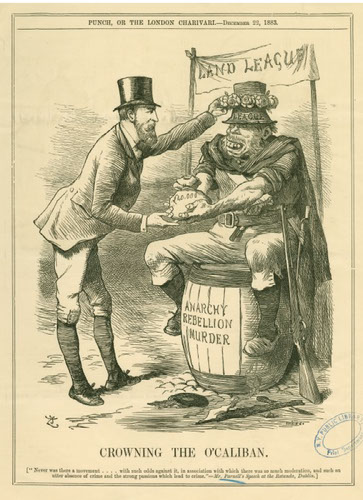
Photo: New York Public Library
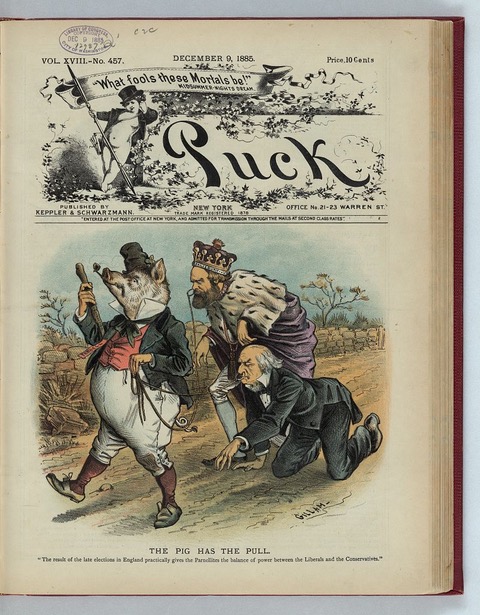

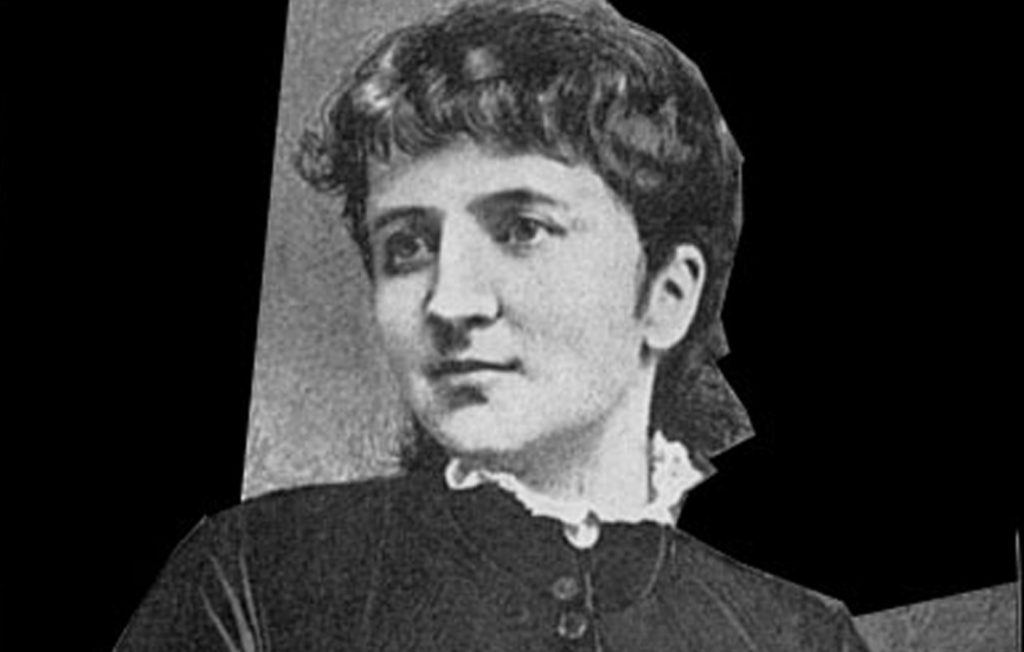
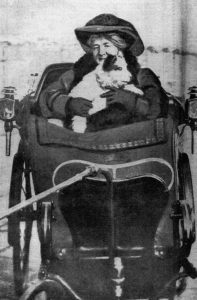
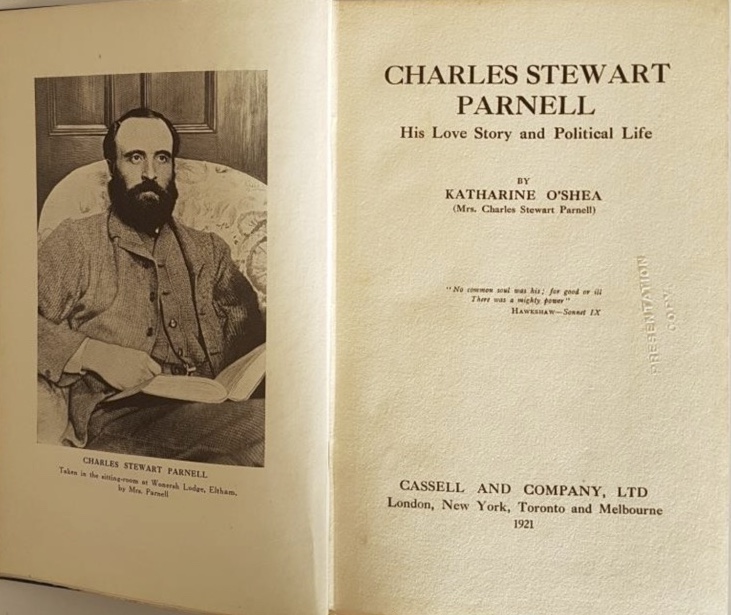
Why does the author refer to O’Shea as Kitty throughout the article when acknowledging at the start that was the name used by her enemies to diminish her? Katherine was her name and Katie, not Kitty, was the nickname that she used and accepted. “Kitty,” while used as a nickname for Katherine, was also an insult and personal slur because a “kitty” in Victorian times meant prostitute. In O’Shea’s case, every time an article cites “Kitty” as her name they perpetrate the insult.
Very interesting and educational article.